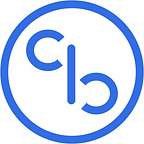What to Read Next on Ethics and Inequity in Tech
Recently, renewed skepticism against big tech has sparked broader discussions on the evolving intersection between politics and technology. As concerns regarding data privacy dominate public discourse, people have expressed a greater interest in how technology might entrench existing structural inequality. The issue though, is identifying where to start.
There is a wide variety of research, articles, and books that speak to bias in technology, especially in the field of AI; with so much material available, it can seem overwhelming to begin your education in this topic area. For that reason, I thought that I would outline some of my favorite easily accessible readings on the subject of algorithmic bias and ethics in technology.
If You Have a Limited Technical Background
Weapons of Math Destruction
This novel by Cathy O’ Neil was immediately popular following its release for the way it easily breaks down otherwise complex concepts in machine learning and data science. Weapons of math destruction, which O’Neil refers to throughout the book as WMDs, are models or algorithms that claim to quantify important traits (e.g. teacher quality, recidivism risk, creditworthiness) but often have harmful unintended outcomes. O’ Neil makes the study of such systems very accessible for those with little background by examining simple shared traits between them. Furthermore, the book is full of examples that will highlight the way that computer systems in politics create harmful feedback loops that perpetuate injustice. This allows all readers to walk away with a clear understanding of the threat they pose. There are few introductory readings out there with a comparable level of detail as this. With a background in academic mathematics and a career in data science, O’ Neil is one of the most educated voices speaking out for limiting the ways we allow algorithms to control our lives.
Automating Inequality: How High-Tech Tools Profile, Police, and Punish the Poor
In contrast to Weapons of Math Destruction, this novel by Virginia Eubanks offers a more personal analysis of automated decision-making by utilizing three case studies on welfare provision, homelessness, and child protection services. Eubanks gives the stories and experiences of her interviewees center stage, which offers an honest and compelling contribution to discussions on machine learning fairness. Specifically, Eubanks shows how automation is much further reaching than past measures that punish poor people in the United States, and how it is likely to have worse repercussions than non-digital mechanisms. The most striking example for me was the story of Indiana’s welfare reform, in which the automated decisions determined the life and death of the poorest and most vulnerable residents. Throughout the entire book, Eubanks presents stories with incredible care, and you will leave significantly more wary about the increasing automation of our public services.
If You Have an Advanced Technical Background
Hello World: How to be Human in the Age of the Machine
This book by Hannah Fry distinguishes itself from the readings above by offering a more mathematical analysis of computer algorithms to explain how they are transforming fields such as health, justice, and even the arts. If you are already aware of the high level strengths and weaknesses of automated systems, this read will offer a more detailed and technical description of their inner workings to warrant why their limitations exist. This read is also different from those above in that it spends a significant amount of time looking forward to predict how the age of artificial intelligence will increasingly encompass our daily lives. My favorite aspect is how Fry discusses common talking points in artificial intelligence, like the regulation of automated vehicles, and how realistic it is to expect resolutions to their moral implications.
Algorithms of Oppression
A much more focused examination than the other readings, this book is the culmination of Safiya Noble’s six years of academic research into Google search algorithms. This read is valuable because of how universal Google usage is. If you find it hard to imagine yourself being affected by the high level systems detailed in the other books, this novel will probably strike close to home. To put it simply, this book challenges the idea that search engines offer an equal playing field for all forms of ideas, identities, and activities. Noble argues instead that private interests in promoting certain sites, coupled with the monopoly status of search engines, leads to a biased set of algorithms that discriminate against people of color. Noble engages in an extensive analysis of textual and media searches as well as an in-depth analysis of paid online advertising. Through this research, she highlights the way in which a culture of racism and sexism exists in the way discoverability occurs online.
Conclusion
Ultimately, I hope that these books are able to offer a great starting point in your journey to learn more about the intersection between inequality, ethics, and technology. It’s a somber subject for sure, but I think there are few things today as important for someone to know about as this. Also, if none of these seem interesting to you, definitely feel free to reach out for more recommendations. I’ve only included books here, but there are so many other resources out there that are accessible, interesting, and groundbreaking for the way we interact with technology.
Aashray is a Codebase member who is passionate about criminal justice, grassroots activism, and voter rights. Find him at aashrayk@berkeley.edu and definitely reach out if you share any interests!
